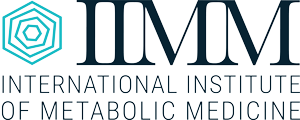Endometriosis, an often unrecognized cause of pelvic pain in women

What is endometriosis?
Endometriosis is a chronic disease affecting one in every ten reproductive-age women. It occurs when tissue similar to the one covering the inside of the uterus grows outside the uterine cavity, for example, attached to the intestines, ovaries or even diaphragm. The two main consequences of untreated endometriosis are chronic severe pain affecting quality of life and, in some cases, infertility.
Do I have endometriosis?
Any reproductive age woman who suffers from either chronic pain or infertility can ask herself this question… and should!, as the answer is easy to find in the right hands and long-lasting solutions exist.
If your answer is YES to any of these questions, you should contact us for further assessment, please note this is not an infallible quiz, even if you do not have any of these symptoms we can still help you rule out this condition.
● Do you often have severe pain when menstruating?
● Do you bleed excessively when menstruating?
● Do you feel pain in the pelvis that increases during menstruation or when ovulating?
● Do you have chronic pain in the lower back, abdomen, or pelvis?
● Do you experience pain related to intercourse (before, during, or after)?
● Do you have pain when passing stool or when urinating?
● Do you bleed in between periods?
● Do you experience fatigue, constipation, diarrhea, distension, or nausea, especially when menstruating?
● Are you struggling with infertility?
● Do you have rectal bleeding or have you seen blood in your urine?
● Do you have leg pain, sciatica, or shortness of breath?
● Did you experience particularly severe pain when menstruating during your school years (i.e. more severe than your peers or pain that caused you to miss school)?
How do you diagnose endometriosis?
Establishing a diagnosis of endometriosis can often be a challenging task, especially as the way that symptoms present can be very different from one person to another, this is the reason why a physical exam is not enough, and neither is blood work!.
American, European and other international societies recommend a multidisciplinary approach to endometriosis diagnosis and management, starting with one of several types of advanced diagnostic imaging: such as ultrasound (which itself can be split into several different kinds) or Magnetic resonance imaging.
Imaging however, can be non-diagnostic in 10 – 12% of patients, in certain situations where clinical suspicion is high but imaging has failed to provide a diagnosis, laparoscopy is recommended, which is when a surgeon who specializes in minimally invasive surgery
inserts tiny cameras and instruments through incisions of ~1 cm in size and visualizes the pelvis and abdomen looking for endometriosis. This approach has the advantage of enabling your doctor to go ahead and remove those lesions, providing a diagnosis as well as a definitive treatment all in one day.
How do you manage endometriosis?
Endometriosis is a complex pathology in which patients can greatly benefit from seeking attention at a highly specialized and certified endometriosis treatment center, as therapy requires attacking the issue from multiple fronts and might include surgical ablation/excision of lesions, pain medications, hormonal therapy, non-hormonal
treatments such as neuromodulators, and other therapies not involving medications, and perhaps even a combination of some of the above.
Each patient needs to be assessed individually in a center that can treat the whole person rather than focus on one diagnosis and one treatment strategy, there is no single recipe that works on everyone.

What is the Institute doing to combat endometriosis?
As the International Institute of Metabolic Medicine is committed to pushing the frontiers of knowledge and incentivizing innovation within the region, we have gathered a group of endometriosis experts from all over the world and developed a two-day program for physicians to better understand the complexity of this topic and enhance endometriosis awareness, in the near future, this same group will join the Institute and will start providing high-quality and affordable care for international patients at one of our facilities.
